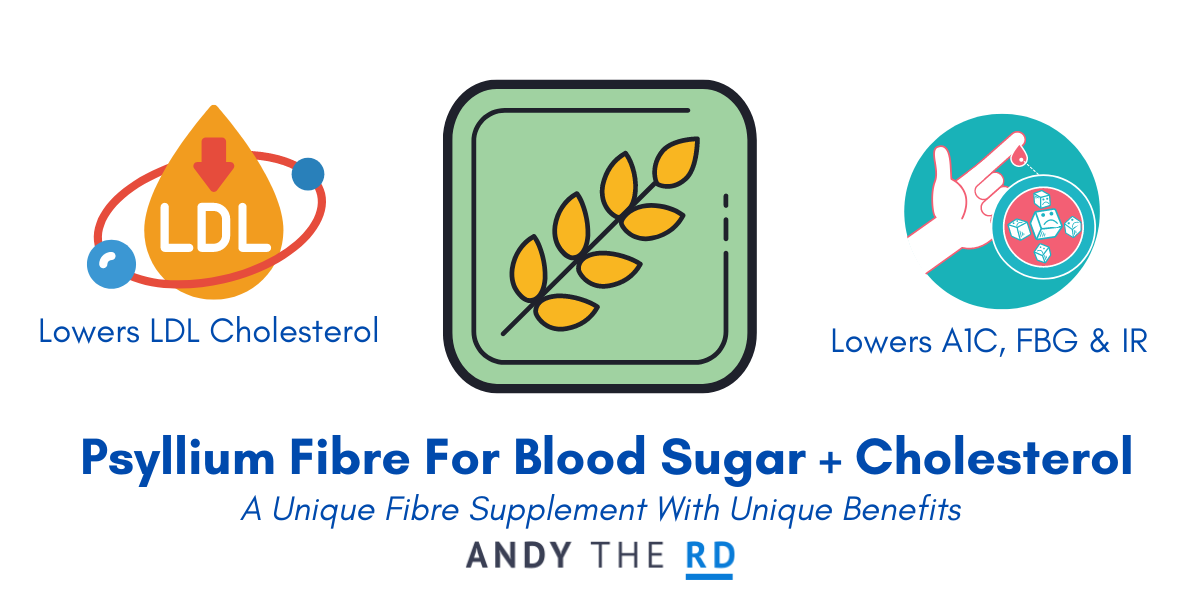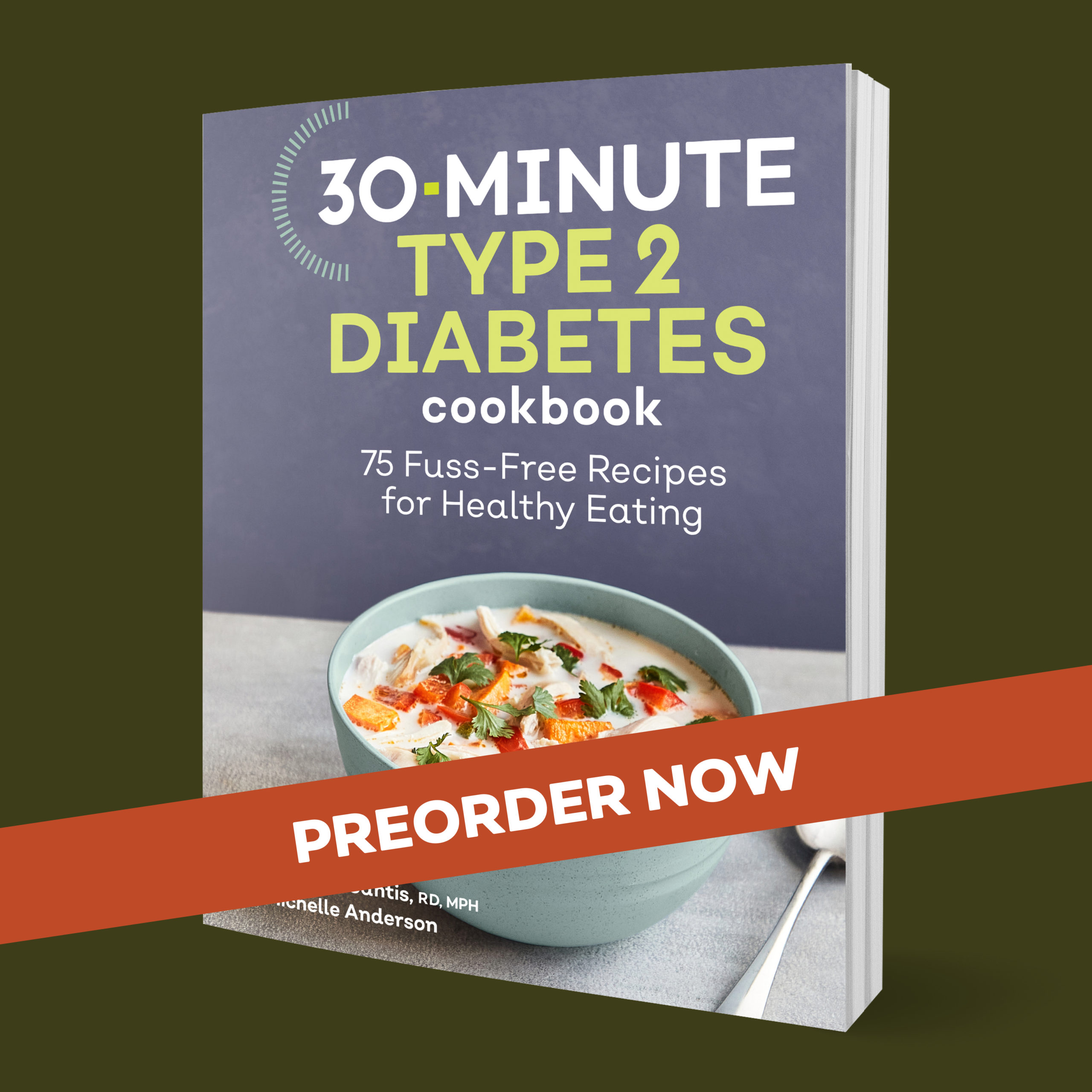Supplementation is a massive topic of interest in the management of any health condition and is often driven as much by marketing as it is by actual scientific evidence of efficacy.
There is no doubting the fact a Google search of “diabetes supplements” will yield a number of product suggestions that may sound appealing but probably don’t do much good.
But there are always exceptions, and psyllium fibre – a type of soluble fibre supplement – happens to be one of them.
Given that I’m in the midst of promoting my brand new 30 Minute Type 2 Diabetes Cookbook, which is now available for pre-order, there was simply no better time to finally broach this subject matter.
While psyllium is mentioned without being formally recommended in the 2018 Diabetes Canada Practice Guidelines, a 2019 systematic review and meta-analysis out of the American Diabetes Association Diabetes Care journal found that an average of around 1 1/4 tablespoons per day of psyllium fibre or other soluble fibre* supplements ( ~13 grams) over an 8-week period led to promising changes in relevant markers of blood glucose metabolism.
These changes include:
1. Decreased A1C by > .5%
2. Decreased fasting blood glucose by > .8 mmol/L or 15 mg/dl
3. Reduced insulin resistance
*This particular meta-analysis included studies which also included other supplemental forms of soluble fibre such as guar gum & β-glucan – among others.
A 2015 meta-analysis out of the American Journal Of Clinical Nutrition looking exclusively at studies using psyllium at meal-time found it had even larger effects on A1C and fasting blood glucose than the results cited above.
Psyllium fibre may also help improve insulin resistance in women living with PCOS, as per this 2020 trial out of Women’s Health And Reproduction Sciences.
These are promising figures, especially in light of the fact that psyllium fibre supplementation in similar amounts has been demonstrated to lower blood LDL cholesterol levels by ~5% and has even been recommended as a tool to help improve symptoms in IBS.
Why Is Psyllium So Effective?
Psyllium fibre is a form of soluble fibre which is known to delay the emptying of the stomach, slow the transit of food through the GI tract and thus facilitate a “healthier” and more moderate blood sugar response.
From the cholesterol perspective, psyllium fibre is particularly adept at binding to fatty acids in the digestive tract and helping to clear them out of your system, which in turn means the body pulls from blood cholesterol stores to replenish these fatty acids and thus creates a blood cholesterol lowering feedback loop (proposed mechanism).
If you want to learn more about blood cholesterol management, take a look at my top cholesterol lowering foods.
Supplemental soluble fibre is only a small piece of the blood sugar management puzzle, however, and a diet generally rich in soluble fibre-containing foods is a massively important consideration for those with newly diagnosed pre or type 2 diabetes to work towards regaining control over their blood sugar levels in both the near and medium term.
If you are curious about learning more about which foods are highest in soluble fibre, I strongly encourage you to check out my previous piece of content on this subject.
Note that an emphasis on soluble fibre-rich foods was one of the big pillars of ingredient and recipe development for my latest book, which I cheerfully remind you is available for pre-order by clicking through the image below.
Until next time,
Andy De Santis RD MPH





